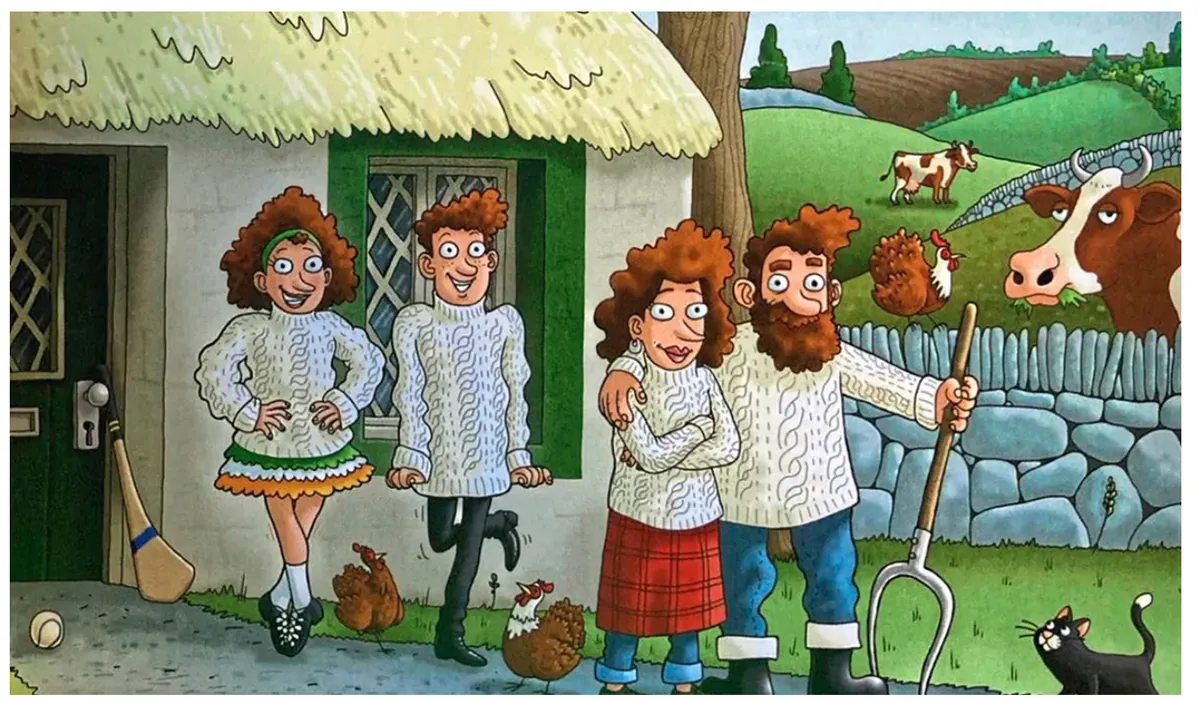Irish Schoolbook Sparks Outrage Over Stereotypical Family Portrayal
A diversity-focused Irish schoolbook faces criticism for its stereotypical depiction of an Irish family. The publisher apologizes and plans to replace the controversial content.

A schoolbook intended to promote diversity in Ireland has sparked controversy due to its stereotypical portrayal of an Irish family. The Educational Company of Ireland, the publisher of the book, has issued an apology and decided to remove the offending material from the curriculum for 14 and 15-year-old students.
The contentious chapter, titled "All Different, All Equal," presented two contrasting families. "Family A," depicted as a stereotypical Irish family, was portrayed wearing Aran jumpers on a farm. This family was described as consuming "potatoes, bacon and cabbage" daily and expressing a dislike for change or diversity. The children were shown participating in Irish dancing and were reportedly discouraged from interacting with people of different religions.

In contrast, "Family B," a mixed-race family, was portrayed more positively. They were depicted as embracing change, enjoying diverse cuisines, and traveling internationally. This family was shown appreciating art and engaging in cultural exchanges through house swapping.
The portrayal of the Irish family drew criticism from politicians. Sorca Clarke of Sinn Féin, an Irish republican party, noted that it echoed long-standing racist caricatures of Irish families. Independent MP Mattie McGrath described the depiction as "disturbing" and called for clarification on how such material was approved for publication.
"Any concerns regarding material published in textbooks should be raised with the publisher themselves."
The Department of Education stated that individual schools are responsible for selecting teaching materials. The publisher acknowledged that their approach, which used "exaggeration and hyperbole" to explain Irish equality legislation, was misguided. They expressed regret for the upset caused and committed to replacing the activity.
This controversy highlights the ongoing challenges in addressing diversity and representation in educational materials. It also underscores the importance of sensitive and accurate portrayals of cultural identities, especially in a country like Ireland that has experienced significant demographic changes in recent decades.
The incident serves as a reminder of the need for careful consideration when developing educational content aimed at promoting equality and diversity. It also reflects the evolving nature of Irish society and the importance of moving beyond outdated stereotypes in educational materials.


































